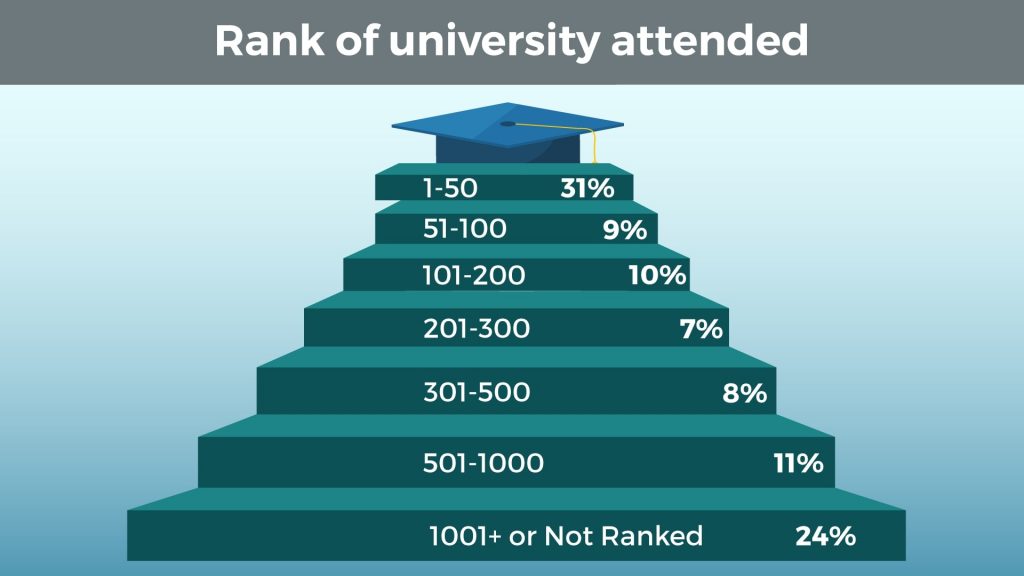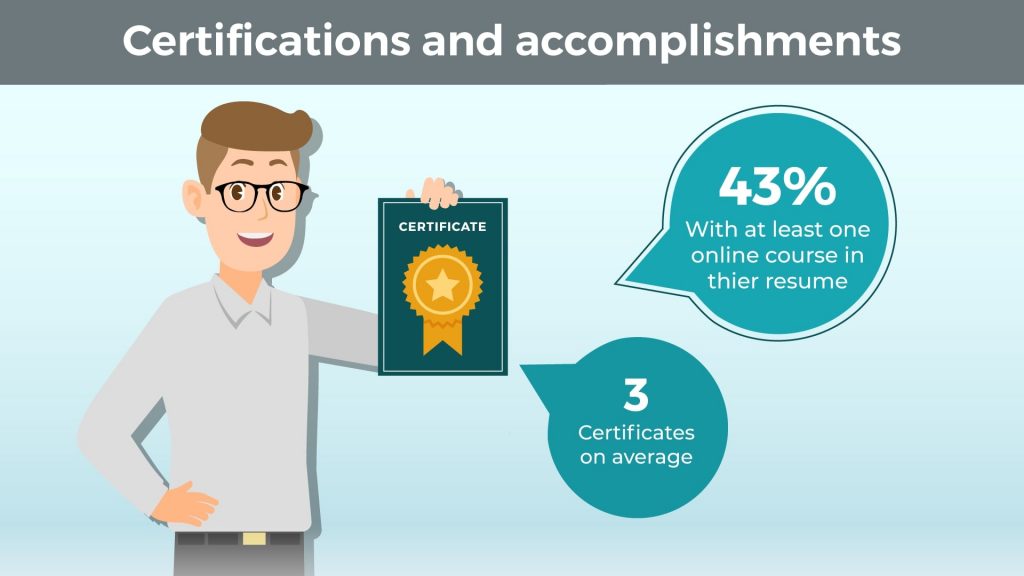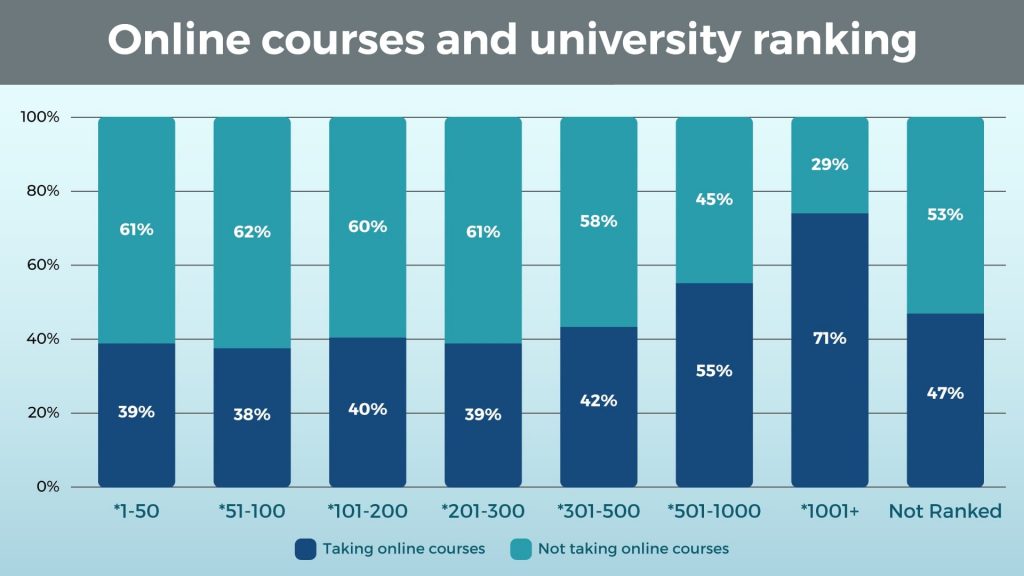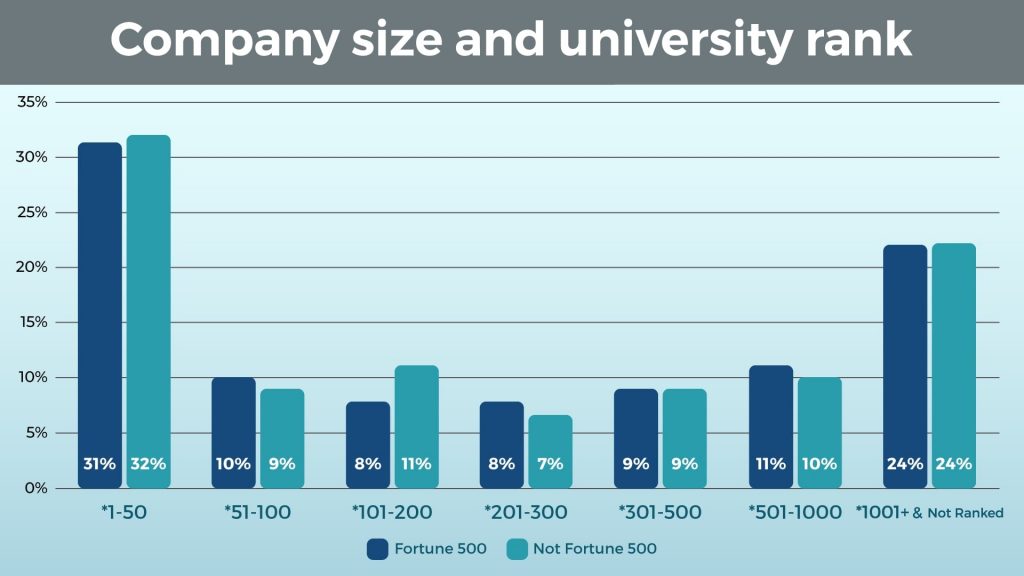Continuing Education for Data Scientists: Courses, Certificates, and Conferences
As technologies evolve and new methodologies emerge, data scientists must continually upgrade their skills to stay relevant.
Join the DZone community and get the full member experience.
Join For FreeIn the dynamic field of data science, the learning never stops. As technologies evolve and new methodologies emerge, data scientists must continually upgrade their skills to stay relevant. Data Science is not a private playing field for Ivy League graduates. Although a third of the professionals in our sample graduated from a Top 50 University (according to the Times Higher Education World University Ranking for 2019), the second largest cohort is represented by graduates of universities not even ranked by the Times (23%). This highlights that data science is open and inclusive, welcoming professionals from various backgrounds and academic levels.

This article explores the various avenues available for continuing education in data science, including courses, certificates, and conferences.
Data scientists must continually update their knowledge and skills in a rapidly changing technological landscape. Continuing education helps them to stay at the forefront of the industry, fostering innovation and excellence in their respective fields.
Continuing education for data scientists can be pursued through various channels, including online Data Science courses, certifications, and conferences, each offering unique opportunities for skill development and networking.
The Evolving Landscape of Data Science
Data science is a field that is continually evolving, with new tools, techniques, and best practices emerging regularly. Keeping informed of these developments is essential for career growth and success in the data science domain.
Online Platforms
Great Learning
- Comprehensive curriculum covering all aspects of data science
- Collaborations with prestigious universities
- Offers mentorship from industry experts
Coursera
- Wide range of data science courses
- Partnerships with renowned universities
- Offers both free and paid courses
Udemy
- Affordable course options
- Courses on specific data science tools and techniques
- User-friendly platform
edX
- Collaborations with top universities worldwide
- Offers MicroMasters programs in data science
- Provides professional certificate programs
DataCamp
- Focuses exclusively on data science and related fields
- Interactive learning with hands-on exercises
- Courses designed by industry experts
University Courses
Stanford University
- Advanced courses in machine learning and artificial intelligence
- Opportunities for research and collaboration
- Renowned faculty in the field of data science
MIT Applied Data Science
- Offers a range of data science courses through MIT OpenCourseWare
- Focus on innovation and cutting-edge technologies
- Provides a strong foundation in data science principles
Harvard University
- Offers courses through Harvard Online Learning
- Focus on data science theory and application
- Provides opportunities for hands-on experience

Specialized Data Science Institutes
The Data Incubator
- Offers fellowship programs in data science
- Focus on real-world applications of data science
- Collaborative learning environment
General Assembly
- Offers immersive data science bootcamps
- Focus on practical skills and project-based learning
- Provides career support and networking opportunities
Springboard
- Offers mentor-led data science courses
- Focus on skill development and portfolio building
- Provides career guidance and support

Course Content and Structure
Core Data Science Concepts
Understanding the core concepts is crucial in the dynamic field of data science. This begins with a solid grasp of the fundamentals, which pave the way for proficient data collection, a critical step in gathering quality raw material for analysis. The subsequent stage involves data cleaning, where inconsistencies and inaccuracies are rectified to ensure the reliability of the data. This sets the stage for data analysis, where insights are derived from the refined data, necessitating a solid command over statistical and analytical techniques. Acquiring skills in programming languages like Python and R is vital, as they are essential tools for efficient data manipulation and analysis, fostering a successful career in data science.
Advanced Analytics and Machine Learning
In the progressive sphere of data science, venturing into advanced analytics and machine learning is a natural progression. This entails exploring sophisticated analytical techniques that delve deeper into data, unveiling patterns and trends that need to be apparent. Concurrently, acquiring knowledge about machine learning algorithms is vital, offering a gateway to understanding their diverse applications in automating data analysis and deriving insightful predictions. Furthermore, honing skills in predictive modeling stands as a cornerstone in this journey, empowering professionals to create models that can forecast future trends with remarkable accuracy, thereby adding a significant edge to decision-making processes in various industries.
Big Data Technologies
In the contemporary data landscape, proficiency in big data technologies is becoming increasingly essential. This journey begins with a deep understanding of big data management principles, laying the groundwork for handling voluminous and complex data sets efficiently. Equally important is familiarizing oneself with various big data tools and platforms, which are the backbone for storing, processing, and analyzing huge data sets. Furthermore, developing skills in data engineering is a critical aspect, facilitating the design and construction of systems and infrastructure for analyzing data and enabling organizations to make data-driven decisions with agility and precision.
Case Studies and Real-World Applications
Delving into case studies and real-world applications forms a pivotal part of a data scientist's learning curve. Analyzing real-world case studies offers a glimpse into the practical challenges and solutions encountered in the industry, fostering a deeper understanding of the theoretical concepts learned. It also facilitates learning about the tangible applications of data science, showcasing how data-driven insights can significantly influence business strategies and outcomes. Engaging in project-based learning is instrumental in developing problem-solving skills, where individuals learn to navigate complex scenarios and devise innovative solutions, preparing them for the dynamic demands of the data science field.
Importance of Certifications
In the competitive job market, certifications have emerged as a benchmark for skill assessment. They enhance credibility and assist in career advancement, helping professionals secure promotions and salary increments. Certifications also provide a platform for networking with industry professionals, fostering collaboration and learning.

This underscores the fact that in the data science environment, university rankings are much more important in employers' decisions. As we highlighted in our previous analysis, data scientists are needed everywhere, from Fortune 500 companies to tech startups.
This underscores the notion that personal skills and self-preparation are the key drivers of success in the data science field, a realization that employers are keenly aware of.
Popular Certifications
Several certifications are recognized globally, allowing data scientists to validate their skills. The Microsoft Certified: Data Scientist Associate and SAS Certified Data Scientist are comprehensive programs covering various aspects of data science, including analytics and data management.
Google's Professional Data Engineer certification focuses on data engineering and management, covering data storage and processing aspects. The IBM Data Science Professional Certificate is another popular choice, offering a comprehensive program covering all data science concepts, including machine learning and data visualization.
Great Learning's Data Science and Business Analytics course is a comprehensive program that collaborates with prestigious universities, offering mentorship from industry experts and a recognized certificate, enhancing the learning experience.
Process of Obtaining Certifications
Obtaining certifications involves meeting specific eligibility criteria, including educational and experience requirements. The examination process requires adequate preparation utilizing study materials and courses to succeed. Post-certification, professionals must continuously learn to renew and maintain their certifications, staying abreast of the latest developments in the field.
Importance of Attending Conferences
Conferences offer a unique platform for data scientists to network with industry professionals and learn from industry leaders. They provide insights into the latest trends and developments in the field, enhancing knowledge and skills through workshops and sessions. Attending conferences helps professionals stay ahead in the competitive job market, fostering innovation and collaboration.
Noteworthy Conferences
Several conferences focus on data science and artificial intelligence, offering sessions by industry leaders and experts. The Strata Data & AI Conference and The Data Science Conference are popular choices, providing platforms for sharing research and insights. The KDD (Knowledge Discovery and Data Mining) conference and Neural Information Processing Systems (NeurIPS) conference are other noteworthy events, offering opportunities for networking and collaboration and fostering learning and innovation in the data science domain.
Conclusion
In conclusion, the field of data science is ever-evolving, necessitating continuous learning and skill enhancement. Choosing the right mix of courses, certificates, and conferences can help data scientists stay at the forefront of the industry, fostering innovation and excellence in their respective fields. As data science continues to grow, the opportunities for learning and development are bound to expand, paving the way for a promising future in the data science domain.
Opinions expressed by DZone contributors are their own.

Comments